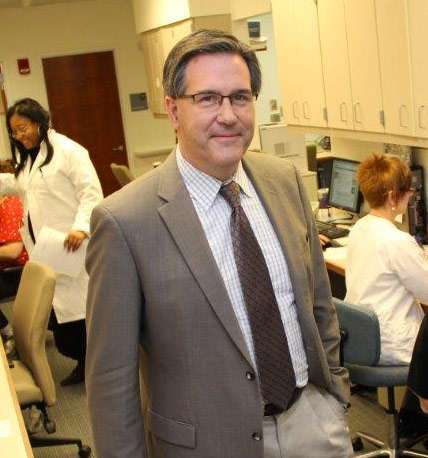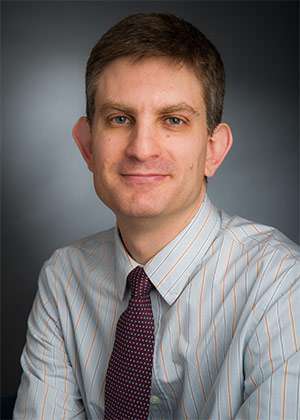Even the name of the grant mechanism – Research Acceleration Network, or RAN – conveys speed. And that’s exactly what partners David Linehan, MD, and Brian Wolpin, MD, MPH, aim to accomplish with their project funded by our first ever RAN-2 Grant – which provides $2 million for an advanced pancreatic cancer clinical trial conducted by a team of at least two co-principal investigators from different institutions.

David Linehan, MD
“During my training as a surgical oncologist, I was drawn to pancreatic cancer, which requires one of the most difficult abdominal operations,” said Linehan, the Seymour I. Schwartz Professor of Surgery and chief of surgery at the University of Rochester and principal investigator of the RAN-2 project. “But the vast majority of patients aren’t eligible for surgery, and even among the ones who do have surgery, many patients develop recurrences of their disease.
“We need better systemic therapies – and we need them now.”
So Linehan launched a research laboratory, dedicated to pancreatic cancer. So did Wolpin, an associate professor of medicine at Harvard Medical School and the co-director of the pancreas and biliary tumor center at the Dana-Farber Cancer Institute. The co-principal investigator on the RAN-2 Grant, Wolpin describes his lab’s focus as “improving the quality of life and extending survival for patients with pancreatic cancer.”
Part of Wolpin’s strategy to achieve this was to pursue a master’s degree in public health. “I took many classes offered by the Harvard School of Public Health that focused on conducting and analyzing human studies,” he explained. “Now, my group can be involved in all aspects of the design and implementation of clinical studies, including those related to early detection and new treatments.”
Together, Linehan and Wolpin are pooling their experience and expertise to conduct a novel pancreatic cancer clinical trial.

Brian Wolpin, MD, MPH
“Our trial holds immense promise in both the short and long term,” Wolpin said. “In the short term, we’re testing a novel immunotherapy-based approach devised by David [Linehan] that has the potential to lead to positive results that we haven’t seen before in patients with metastatic pancreatic cancer.
“And in the longer term, we will collect biopsies from patients before and during treatment – and we will analyze these biopsies to find out what happens to the tumor and its surrounding tissue when exposed to our treatment regimen.”
Linehan added that unless scientists collect patient tissue and conduct studies, the research community will never know why a drug succeeds or fails.
“If the drug works, we need to confirm that it’s functioning the way we expected. And these types of analyses will allow us to identify biomarkers, or molecular clues, that can tell us which patients are most likely to respond to this type of treatment moving forward.”
The RAN-2 clinical trial, which is supported by the generosity of The Henry and Marilyn Taub Foundation in memory of Shirley Sadoff, tests a combination of a standard chemotherapy with a drug designed to recruit immune cells to the tumor and expose the cancer cells to an immune attack. In essence, the team hopes to take down the tumor’s defenses and put the immune system on the offensive – equipping the patient’s own body to help fight off the cancer cells.
“This grant is really big for us – it’s transformative in many ways,” Linehan said. “Other funding sources don’t typically support this type of translational work – bridging the clinic and the lab.”
Though we laud our research grantees as Champions of Progress, both Linehan and Wolpin humbly pass that title on to those for whom they are working so hard in the lab.
“The true champions are the patients,” Linehan said. “They are trusting us by participating in our clinical trial and courageously agreeing to provide several biopsies, which will help us understand their response to the treatment as well as benefit future patients.
“Brian and I and our entire RAN-2 team are passionate about making a difference in this disease. We promise to be excellent stewards of this extremely generous award.”





